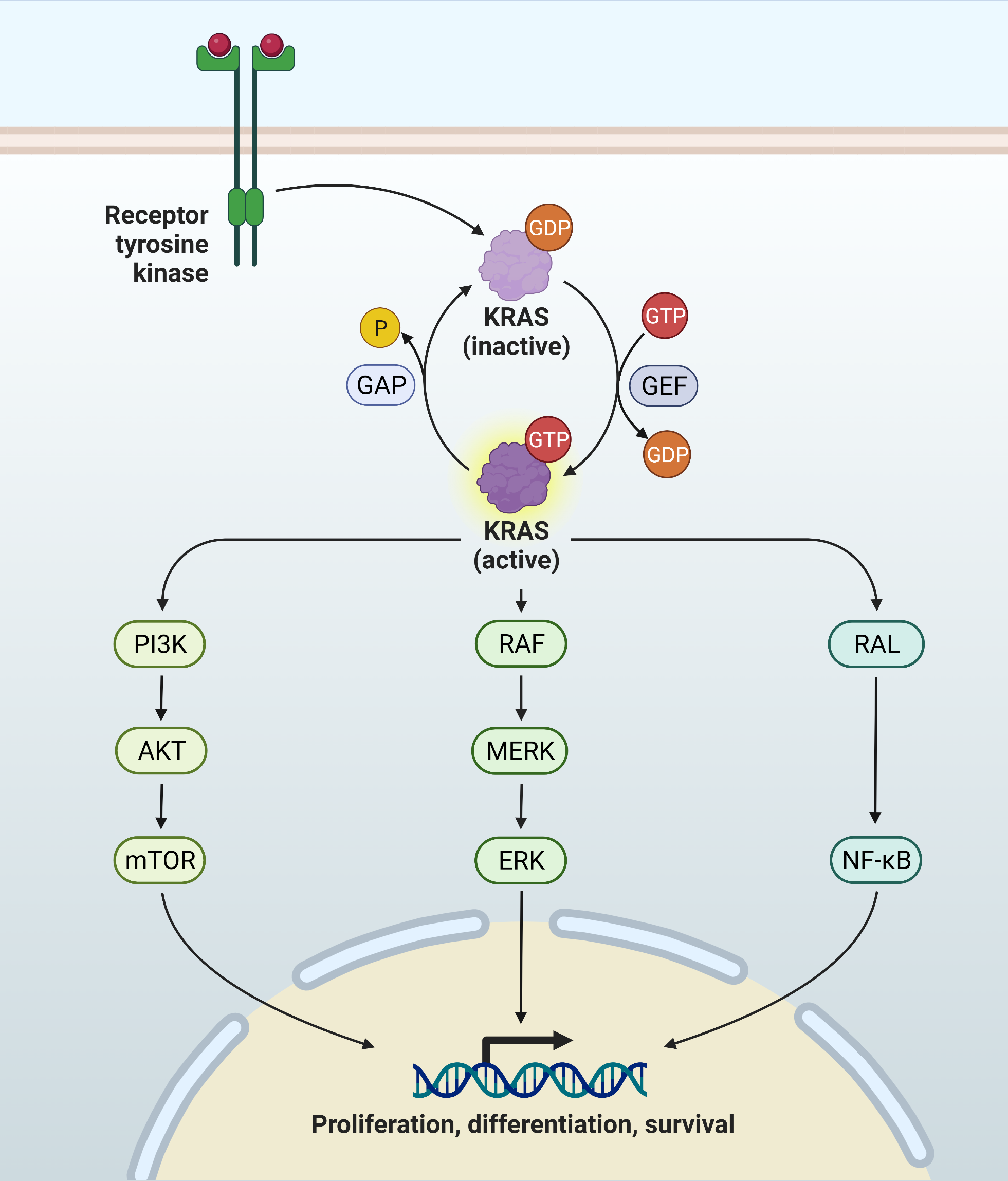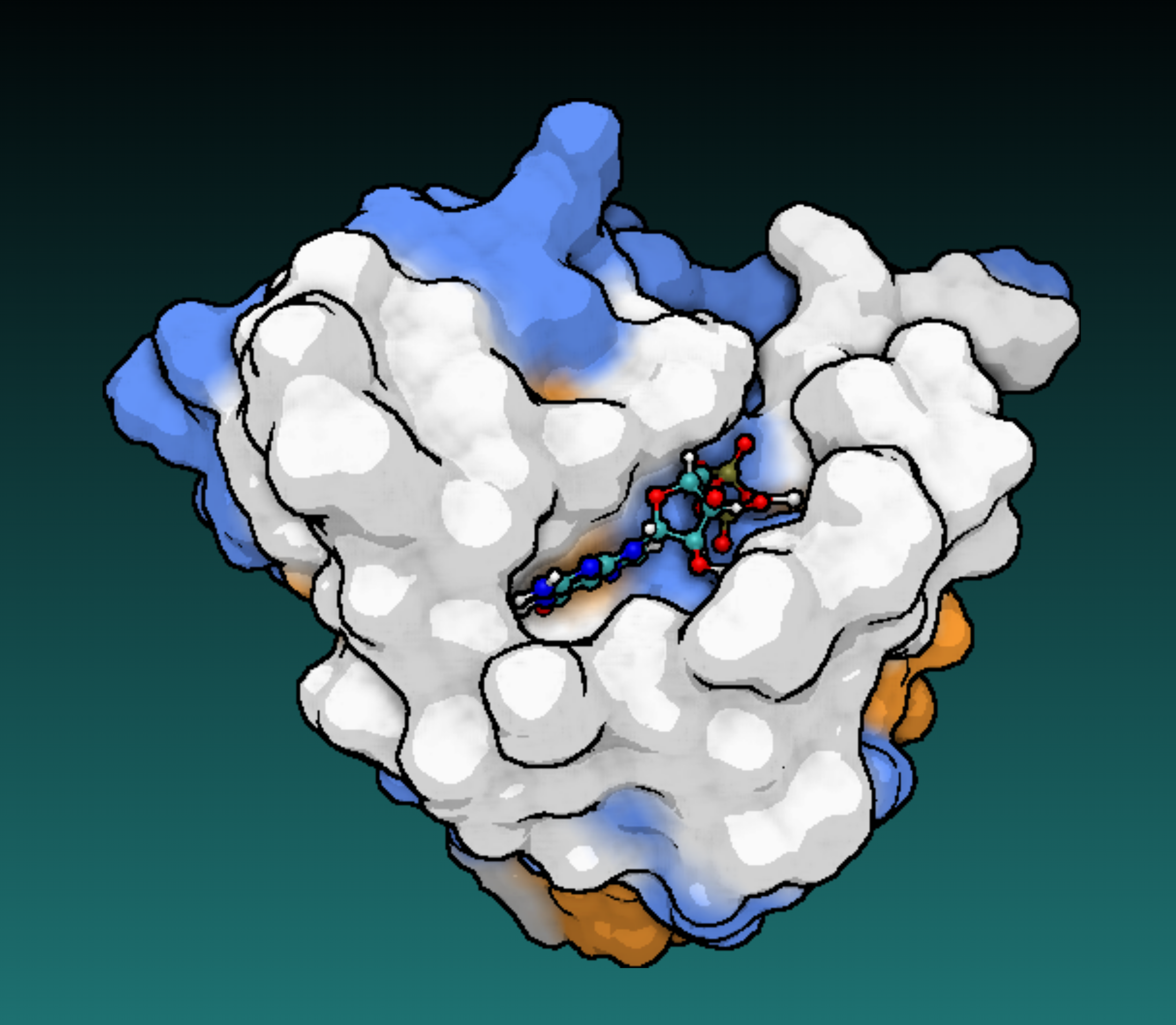Ras Signaling

The RAS GTPase protein is involved in transmitting cell proliferation and survival signals from cell surface growth factor receptors. There are three isoforms: HRAS, KRAS, and NRAS. Mutations in KRAS, particularly at G12, G13, and Q61, are the cause of certain human cancers, identified in more than 80% of all pancreatic cancers and more than 30% of colorectal and cholangial cancers and lung adenocarcinomas.
 |
| A 3-D model rendering of GDP-loaded KRAS (PDB ID: 4OBE), colored by secondary structure with helixes in blue and sheets in orange. |
Activated KRAS triggers several signaling pathways including the MAPK pathway. KRAS function is controlled by cycling through an inactive, GDP-bound state and an active, GTP-bound state. Activation of KRAS occurs when it binds to Guanine Nucleotide Exchange Factor (GEF) proteins, including SOS, which initiate the exchange of GDP for GTP. Active, GTP-bound KRAS can trigger activation of downstream signaling molecules including RAF, PI3K, and RAL. KRAS can self-inactivate by cleaving the terminal phosphate group on the GTP, converting it to GDP. This inactivation process is accelerated by GTPase-activating (GAP) proteins.
New developments in understanding KRAS mutations have led to several avenues for targeting KRAS in cancer, including the use of small molecule inhibitors and Proteolysis Targeting Chimeras (PROTACs).

